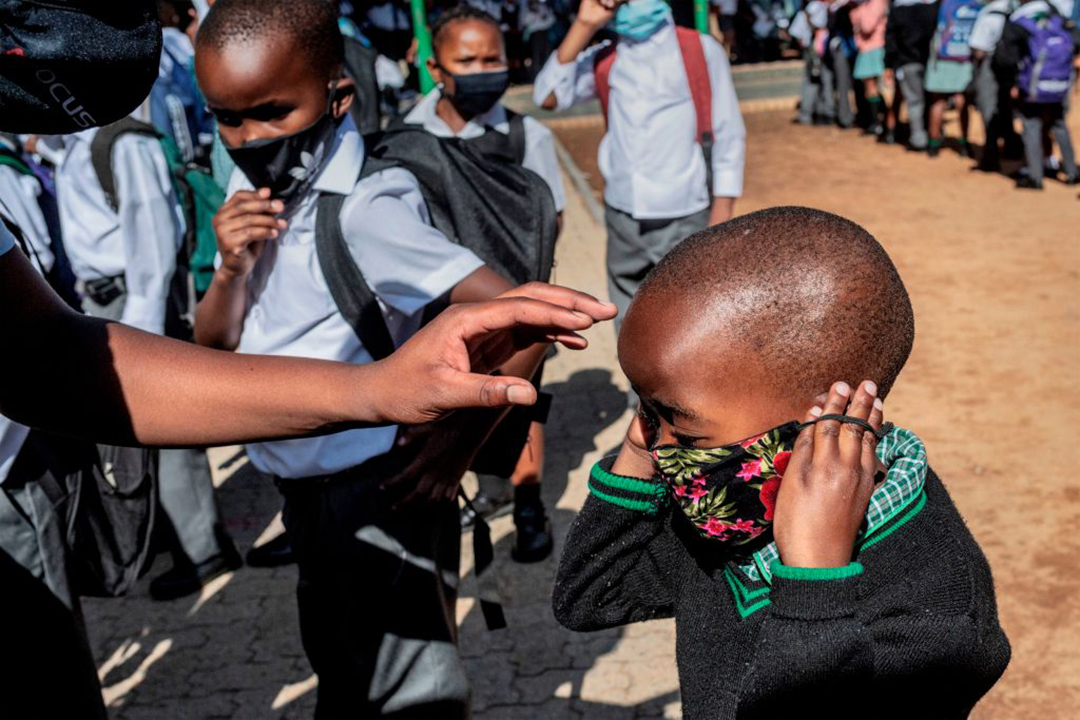As COVID-19 Mutates, Experts Weigh Prevention Measures
ADF STAFF
South Africa’s Department of Basic Education announced in late June that masks no longer were required in schools to prevent the spread of COVID-19.
The announcement was made a day after South African Health Minister Joseph Phaala repealed COVID-19 restrictions such as wearing masks in public, limiting sizes for gatherings and border checks for the virus. Phaala’s announcement came as the country’s fifth wave, driven by highly transmissible omicron subvariants, receded.
“Most people have already gotten rid of masks,” Dr. Mvuyisi Mzukwa, chairman of the South African Medical Association, told South Africa’s SABC News. “This is just an official statement [from the Department of Basic Education], and there was poor enforcement of those regulations anyway. You have seen funerals full to capacity and in public transport, people were already not wearing masks, so I don’t think it is a new thing but now it is just official.”
Experts say there are pros and cons to eliminating restrictions between COVID-19 waves. Although it helps reduce COVID-19 fatigue, there may be public backlash if preventive measures are reimposed as new variants and subvariants emerge.
“When you tell people don’t wear masks outside but put them back on when you’re inside, then there’s always a concern about how to maintain that switching on and off,” Kileka Mlisana, who co-chairs a ministerial advisory committee of COVID-19, told South African online news outlet Spotlight. “Then, if there’s a new variant, how do we bring it back?”
Mlisana urged people to continue wearing masks, but Robin Wood, an infectious disease specialist and emeritus professor at the University of Cape Town, argued that people should stop wearing masks altogether.
“The mask is trying to decrease a person’s exposure to infectious particles, but how much it does so depends on the quality of the mask,” Wood told Spotlight. “The time you spend in an environment is also a factor because if you’re somewhere for a very long time then the mask isn’t going to make any difference.”
Preventive measures such as regular hand-washing are sensible whether there is a pandemic or not, as it kills germs and helps prevent diseases.
The experts interviewed by Spotlight agreed that there is no need to use hand sanitizer every time you touch a doorknob or enter a public space because the virus doesn’t seem to survive long on surfaces. However, hand sanitizer may be a good option in places with poor ventilation.
A lack of proper ventilation in enclosed or crowded places is one issue the pandemic has highlighted.
“When you have crowded areas, you’re essentially coming down to how much air people are swapping between themselves,” Wood told Spotlight. “People in more urban settings would probably swap about 20 liters of air a day, people living in crowded townships swap about 40 to 100 liters a day, and people who are incarcerated in prisons are probably swapping about 2,000 liters a day.”
The Africa Centres for Disease Control and Prevention (Africa CDC) said in late June that countries were in different stages of battling the pandemic. It advised using data-driven strategies to determine proper prevention measures.
“We also expect that the protocols will not all be the same during this stage of the pandemic,” Africa CDC Acting Director Ahmed Ogwell Ouma said in a Reuters report. “We have encouraged them (countries) to use their own data, the evolving situation on the ground and their capacity for surveillance … to provide any adjustments.”


Comments are closed.